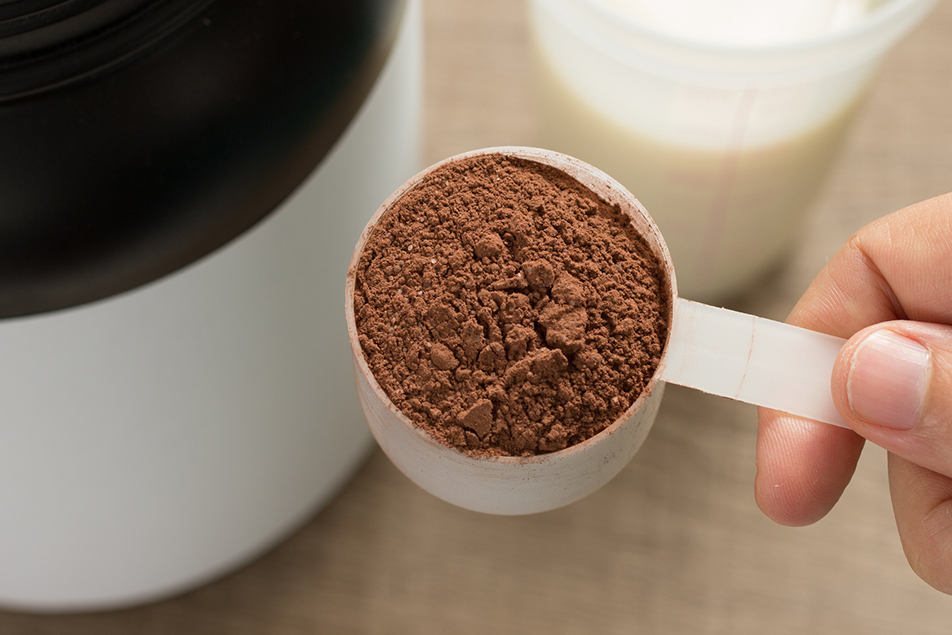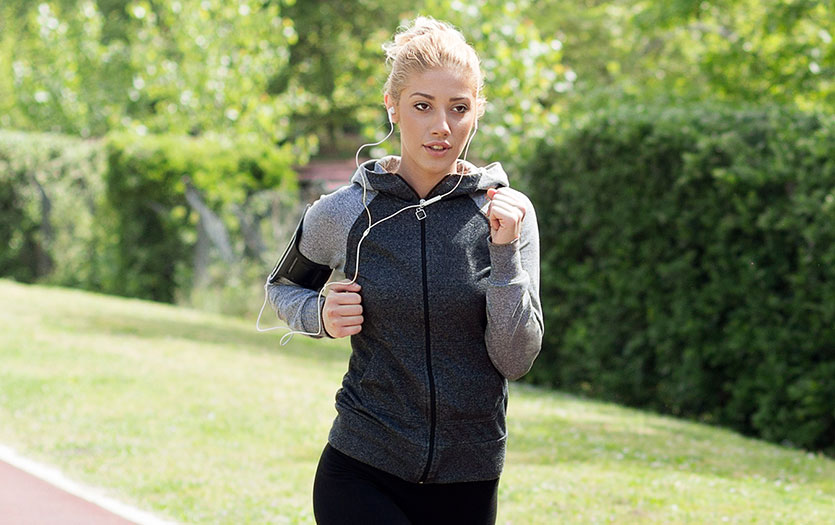
Athletes often utilize pre-workout supplements to improve their athletic performance and energy before exercise, but many are taking this boost too far. A recent viral fad has people consuming a dry scoop of pre-workout powder, causing severe side effects and putting their health at risk. We asked Sami Kauffman, MA, RD, CSSD, LD, sports dietitian, Parkview Sports Medicine, to weigh in on dry scooping and the dangers of this harmful trend.
Dry scooping explained
Dry scooping is the method of ingesting your pre-workout or protein supplement without diluting it with water. Many believe that consuming the product this way will help it absorb faster, allowing it to take effect quicker, maximizing the results of the supplement’s ingredients. However, there is no scientific evidence that this actually occurs. Unfortunately, it appears to be more of a placebo effect.
While athletes take pre-workout supplements to boost energy and optimize performance, these products often contain ingredients including:
- Creatine
- Branched-Chain Amino Acids (BCAAs)
- Citric acid
- Beta-alanine
- L-citrulline
- Caffeine
- Niacin
These ingredients can cause side effects of varying degrees, including skin tingling, red rashes, shakiness, shortness of breath, irregular heart rhythms, and even heart attack or stroke in extreme cases.
Sadly, these supplements go unregulated for consistency and ingredient content. So, you could ingest excessive amounts of an ingredient or even contaminated ingredients, which is a risk any time someone utilizes these types of dietary supplements.
The dangers
Dry scooping, in particular, poses several risks, including shortness of breath, tooth decay, respiratory infection, irregular heart rhythms, stroke and heart attack. Excessive caffeine intake can be hard on the heart, while the citric acid in pre-workout products can strip away your tooth’s enamel.
Furthermore, if you aren’t used to the amount of caffeine present in pre-workout products, it’s best to increase your usage slowly. This will help determine the level of caffeine intake that works for you without causing any side effects or symptoms. Additionally, you must follow the dilution instructions since there isn’t concrete scientific evidence on the safety of dry scooping.
Final thoughts
As we’ve discussed in previous posts, supplements are often not necessary for athletes. Eating a balanced diet will usually provide individuals with all the minerals and nutrients they need to reach peak performance levels. Remember, you can get the same boost of energy from various food or beverage sources of caffeine such as coffee, tea, sugar-free soft drinks and chocolate products. And, if you want to maximize your performance, be sure to eat enough calories for your exercise level while timing carbohydrate intake around physical activity to ensure you have adequate energy for your workouts.



